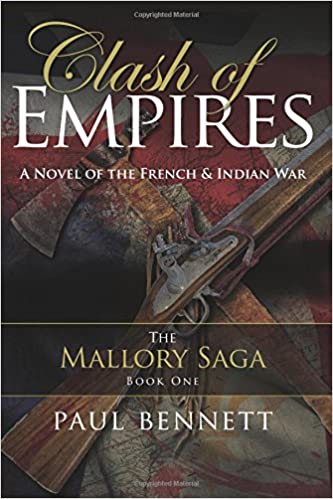
Exploring Genre: Fantasy Fiction
 Fantasy fiction is easily one of the most popular forms of genre fiction, falling into the top five of sales year after year. It’s also a style of storytelling that has become increasingly popular in visual storytelling (television and movies) with each passing decade. I wrote an article that, in part, tells some of the history of the genre here, along with how my own books fit into the large and multi-faceted genre.
Fantasy fiction is easily one of the most popular forms of genre fiction, falling into the top five of sales year after year. It’s also a style of storytelling that has become increasingly popular in visual storytelling (television and movies) with each passing decade. I wrote an article that, in part, tells some of the history of the genre here, along with how my own books fit into the large and multi-faceted genre.
Of all the genres in the world of literature, fantasy fiction is one genre that gets dismissed the most quickly by readers who consider themselves to be serious, intelligent, and discerning. Or put another way, “too pragmatic” to read fantasy? Considered purposeless, these readers prefer to spend their time reading books that talk about real things rather than the imaginary “unrealistic” (part of the appeal of fantasy, perhaps?).
But often these readers haven’t considered the part fantasy fiction plays within the myriad of deeper purposes the entirety of fiction holds for us in general.
But first, what is fantasy fiction?
Fantasy fiction is a genre of speculative fiction that often features magic or supernatural elements as a major plot element, theme, or setting, though contrary to popular belief, does not require it. It often takes place in an imaginary world, such as a medieval-like fantasy land or a parallel universe. Some examples of fantasy fiction include J.R.R. Tolkien’s “The Lord of the Rings” and George R.R. Martin’s “A Song of Ice and Fire.” Again, see my article here.
What are the different “flavors” of fantasy?
Fantasy fiction comes in many varieties with numerous subgenres, including:
- High fantasy: This subgenre takes place in an imaginary world and often features epic battles, noble heroes, and powerful magic. Examples include J.R.R. Tolkien’s “The Lord of the Rings” and C.S. Lewis’s “The Chronicles of Narnia.”
- Low fantasy: This subgenre is similar to high fantasy but is set in a more realistic, earth-like world. Magic, if it exists, is intrusive into the known world rather than a purely imaginary one. Examples include George R.R. Martin’s “A Song of Ice and Fire” and J.K. Rowling’s “Harry Potter” series. If a fantasy story does not have magic, it is often low fantasy. (This is where I’d probably place my books, by the way.) Another great example of this is Brandon Sanderson’s “Mistborn” series whose magic could be explained as mysterious happenings science just hasn’t been able to explain yet but might very well in subsequent generations.
- Sword and Sorcery: This subgenre is characterized by fast-paced, action-packed stories featuring sword-wielding heroes and magic-wielding sorcerers. Examples include Robert E. Howard’s “Conan the Barbarian” stories and Michael Moorcock’s “Eternal Champion” series.
- Dark fantasy: This subgenre features a darker, more ominous tone than other fantasy subgenres, often including elements of horror. Examples include George R.R. Martin’s “A Song of Ice and Fire” and Neil Gaiman’s “The Sandman” comics.
- Urban fantasy: This subgenre combines fantasy elements with modern-day urban settings. Examples include Jim Butcher’s “The Dresden Files,” Neil Gaiman’s “American Gods,” and Ben Aaronovitch’s “Rivers of London.”
- Epic fantasy: This subgenre typically features a large and complex world and a wide cast of characters that may include different races and cultures. They often include a quest or a journey of discovery, a significant battle or war and a prophecy to be fulfilled. Examples include J.R.R. Tolkien’s “The Lord of the Rings” and Robert Jordan’s “The Wheel of Time” series.
Why do people read fantasy?
People read fantasy fiction for a variety of reasons. Perhaps the biggest one is that it allows readers to escape from their everyday lives like other forms of storytelling, but fantasy worlds

usually deal with problems and complexities very different from normal life creating a means of separation from usually stresses. Fantasy stories often feature epic quests, battles, and other exciting adventures that can be thrilling and exciting in ways with which normal day-to-day life just can’t compete.
Fantasy stories allow readers to use their imagination in a way they don’t experience in other genres. They explore new worlds, cultures, and ways of life. It allows readers to think about different perspectives and scenarios. Fantasy fiction allows authors to create a world with its own set of rules and laws that are different from our own, this can be a fascinating aspect for readers to explore and understand.
What good could possibly come from reading fantasy?
Fantasy fiction can be educational. Stories can teach important life lessons, such as the importance of friendship, courage, and determination. They can also be used to explore complex philosophical and moral questions, such as the nature of good and evil. We often learn hard truths more easily through story.
Fantasy stories can inspire readers to think more creatively and to explore their own imagination. They can also inspire readers to take an interest in other cultures, historical periods, and ways of life. Sometimes it’s easier to see commonalities with people and cultures who are different from us and who exist in an imaginary world without connecting people and cultures to our modern political and social struggles. We can then transfer the things we learn and apply them to our everyday lives.
Like all forms of fiction, fantasy fiction can help people to develop empathy and understand different perspectives, it can also help readers to develop critical thinking skills by asking questions and analyzing the story’s themes and motifs.
Overall, fantasy fiction can be a useful tool for entertainment, education, and personal growth, providing an opportunity for readers to explore new worlds, meet interesting characters, and experience exciting adventures. It can also have a significant impact on popular culture and entertainment, inspiring other forms of media.




